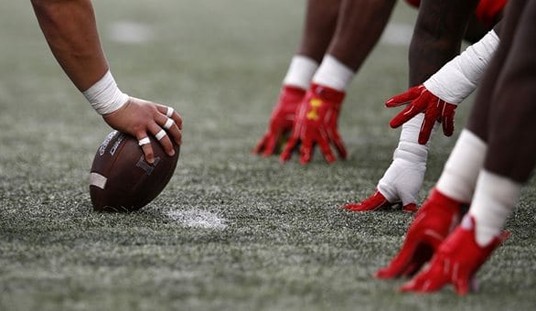Amongst American ideals, the right to private property is among the most important. We are allowed to buy, own, and sell our property as we like, when we like. It’s just how it works. Well, it’s how it’s supposed to work but, in Michigan, that’s not always the case. Got tickets to sell? I’m afraid you can’t just sell them as you wish. “It’s not a fan friendly ticket environment here in Michigan” said Josh Hovey of Michigan Ticket Fairness.
Let’s say you have tickets to the Red Wings game this Friday night (lucky you!), but you can’t make it (unlucky you!). You spend $45 on tickets, and your neighbor will pay you $50 for them. Sounds great, right? Not so fast. In Michigan, that’s illegal.
You see, Michigan has an 80 year-old law on the books preventing people from selling their tickets above face value. While this was meant to put a stop to scalping, it is also a pretty great example of crony capitalism. The vendors and venues receive a portion of all ticket sales. Then, they make deals with sites like StubHub to be the sole avenue through which tickets can be resold, and they get a kick-back from those sales, too. So, they’re getting paid twice for the same tickets. Furthermore, on some sites, the consumer can only see the asking price of the ticket. Once hidden fees are assessed, they end up paying considerably more, in many cases even paying shipping fees for tickets delivered electronically. This law seems to benefit the sites, venues, and teams or bands, but the consumer gets the short end of the stick. In fact, as Hovey said, “They’re complicit in scalping because they have these agreements.”
While the law on the books is meant to hurt scalpers, it’s really just hurting the average fan. “It’s a burden on consumers” said Hovey. People have no idea that they are in violation of the law by selling a ticket to a friend, because it’s so nonsensical. Have you ever seen tickets up for auction at a charity event? In Michigan, that’s illegal, too. Nonprofits frequently have tickets to big games or events as part of their fundraising activities, raising money for a good cause. That’s illegal, too. This overregulation has led to a legalized monopoly, making the situation, Hovey said “a consumer rights issue.”
While the concern is that scalpers will buy up blocks of tickets and drive up the prices, venues can already control how many they sell and to whom. Police are stationed near venues to ensure that scalping isn’t happening, so there are safeguards in action. So, why not let people engage in a little free market with their own property? There is now legislation to that effect in Michigan in the form of HB5108. It has passed the House with bipartisan support, and we will all be waiting on a decision from the Senate. If it passes, said Hovey, it will “allow the average fan to re-sell their ticket to a friend or neighbor.” Make your voice heard on this issue, Michigan, and let’s get this legislation through the Senate.












Join the conversation as a VIP Member